International Symposium: Exploring the New Dynamics of the Global South: How Are Developing Countries Proactively Interacting with China?
2024.04.26
The international community faces a critical moment in establishing a new global system amidst complex challenges. China's pursuit of superpower status and its engagement with developing countries raise concerns about infrastructure projects with environmental impact, human rights, and debt burdens. But how about the perspectives of smaller states?
JICA Ogata Sadako Research Institute for Peace and Development (JICA Ogata Research Institute) has been conducting a research project “The New Dynamics of Peace and Development in the Indo-Pacific: How Countries in the Region Proactively Interact with China” to redefine bilateral relations with China from the perspective of smaller states. The project has focused on seven countries as case studies: the Philippines, Laos, Bangladesh, Sri Lanka, Uzbekistan, Serbia and Zambia. On March 5, 2024, the institute held a seminar in Tokyo to share the research findings from four case studies, bringing together with the project members and international audience.
First, Takahara Akio, former executive director and presently senior research advisor of the JICA Ogata Research Institute as well as professor at the University of Tokyo, provided a brief overview of the project. He emphasized the significance of analyzing how smaller countries are navigating their relationship with China denoting “agency” as the pivotal concept in understanding the discourse surrounding the “Global South” and its interactions with China. He introduced the analytical framework deployed in the research project, namely the “pentagonal model”. It identifies five factors that have contributed to the evolution of the relationship between smaller states and China: domestic politics, economy, international relations (global), international relations (regional), and peace and security. He explained that the application of this pentagonal model to each country will serve as a tool to compare the dynamics of the relationships between China and smaller states.
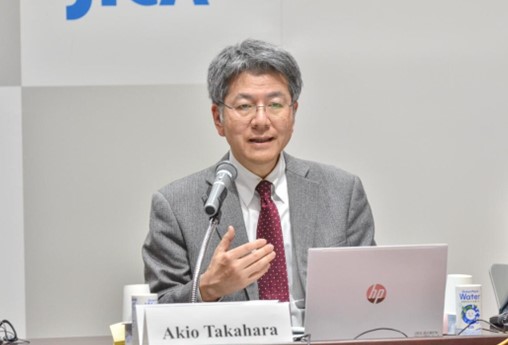
Takahara Akio, former executive director and presently senior research advisor of the JICA Ogata Research Institute, and professor at the University of Tokyo.
Alvin Camba, assistant professor at the University of Denver, started his presentation by exploring how the Philippines formed its foreign policy towards China. He challenged the existing literature on the Philippine's international relations, which focuses on international relations and domestic politics for mis-specification and under-specification respectively. He contends that other under-researched factors explain the Philippines' foreign policy by focusing on the “political leader” as the unit of analysis, rather than the state. Contrary to the dominant body of research, he argues that regime change alters interaction with geopolitics, domestic politics, and economic realities, which eventually shapes a new foreign policy towards China.
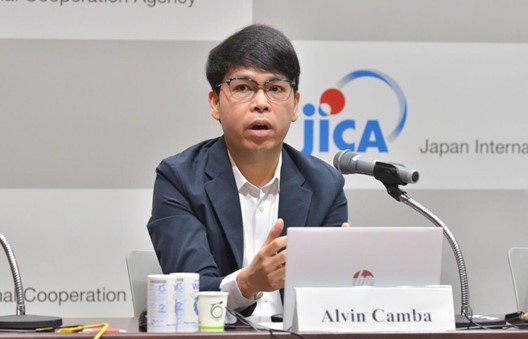
Alvin Camba, assistant professor at the University of Denver
Cheng-Chwee Kuik, professor at the National University of Malaysia, presented the findings of a case study of Laos, drawing on the Laos-China Railway Project. Kuik believes that the project has a regional implication on the connectivity, not only between China and Laos, but on further southwest expansions. He addressed the existing gaps between the country’s elite legitimation and the public perception towards collaboration with China. The fragility of Laos’ agency is attributed to three main determinants: the political system represented in the lack of bottom-up societal checks and balances, the internal inadequacies such as lack of resources and institutions, and the limited alternatives of external partners.
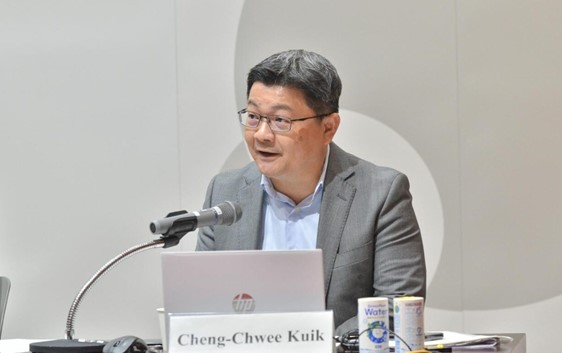
Cheng-Chwee Kuik, professor at National University of Malaysia
Professor Lailufar Yasmin of the University of Dhaka discussed Bangladesh’s rising geopolitical significance and agency vis-a-vis China’s regional and global ambitions. She addressed the quantitative shift in Bangladesh-China relations since 2006, when the latter emerged as Bangladesh’s largest trading partner surpassing India. Yasmin highlighted Bangladesh’s demographic potential having the world’s eighth largest population of which youth are the majority, adding to its potentiality as a cooperation partner, besides the steady, though underrated, economic growth the country has achieved. She concluded that there are several factors contributing to China being welcomed in Bangladesh as a development partner, mainly the distinctive patterns of trading, easing of visa conditions, and China’s political and cultural proximities compared to India.

Lailufar Yasmin, professor at the University of Dhaka
Dragana Mitrovic, professor at the University of Belgrade, explained Serbia’s centrality in China’s proposed “Land Sea Express Route,” as the earlier being a non-NATO member and a militarily neutral state making it a more attractive partner of China. Serbia aims at expanding its political, economic and cultural influence on this region of Europe. Moreover, Mitrovic explained that China’s political support for Serbia’s stance on the self-declared independence of Kosovo in 2008, in addition to the ongoing military cooperation between the two countries, has significantly contributed to introducing China as one of Serbia’s most prominent global strategic partners.
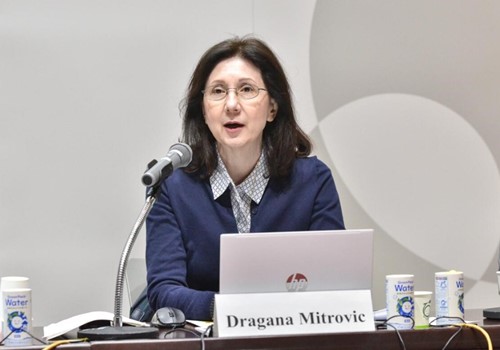
Dragana Mitrovic, professor at the University of Belgrade
The panel discussion and Q&A session were moderated by Kitano Naohiro, visiting fellow at the JICA Ogata Research Institute and professor at Waseda University. Kitano shared his estimate on China’s foreign aid (2001-2022) as a proxy of ODA, noting that China’s foreign aid budget may not significantly increase in the near term. The discussant Shiga Hiroaki, visiting fellow at the JICA Ogata Research Institute and professor at Yokohama National University, stressed the need for a realistic assessment of relations between countries by arguing that they are more nuanced than the self-proclaimed realistic perception. He added that the tendency of smaller countries to exert agency over bigger countries will eventually intensify.
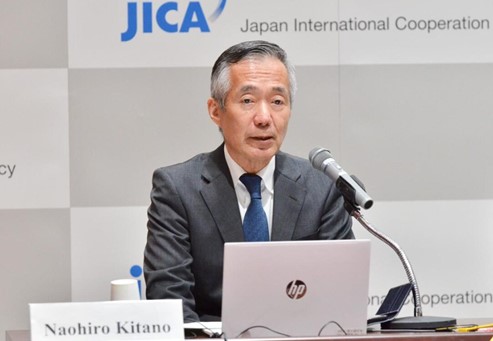
Kitano Naohiro, visiting fellow at the JICA Ogata Research Institute and professor at Waseda University
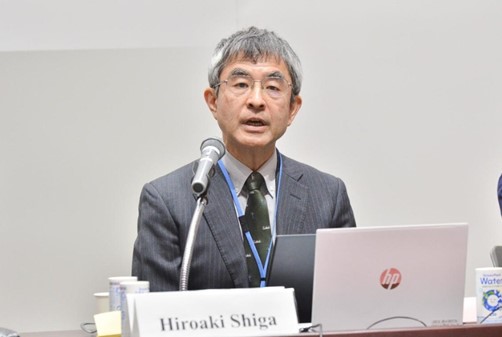
Shiga Hiroaki, visiting fellow at the JICA Ogata Research Institute and professor at Yokohama National University
Among various questions and issues discussed between the floor and the speakers, one was about China's role in challenging climate change issues. Mitrovic said that the indication of maturity could be observed from the Chinese President’s statement in 2021 that China would stop providing financial support for overseas coal and fund more green and low-carbon energy projects in developing countries.
Lastly, Takahara Akio, senior research advisor, concluded by emphasizing the significance of analyzing the political processes in partner countries. Takahara said that it is essential to bear in mind that the development cooperation is inevitably political in nature, and in order to implement effective projects, it is crucial to have a clear understanding of the political processes in each country. In addition, he also mentioned the importance of looking at the political processes in China, such as which actors are active in respective sectors, what different ideas there are, and what politics are behind those ideas. To understand China's development assistance, he highlighted the importance of looking beyond policy documents and learning about what is actually being done on the ground.
The results of this research project were published as a special issue of the journal (Journal
of Contemporary East Asia Studies) consisting of 12 articles.
The video recording is available by clicking the link below.

事業事前評価表(地球規模課題対応国際科学技術協力(SATREPS)).国際協力機構 地球環境部 . 防災第一チーム. 1.案件名.国 名: フィリピン共和国.

事業事前評価表(地球規模課題対応国際科学技術協力(SATREPS)).国際協力機構 地球環境部 . 防災第一チーム. 1.案件名.国 名: フィリピン共和国.

事業事前評価表(地球規模課題対応国際科学技術協力(SATREPS)).国際協力機構 地球環境部 . 防災第一チーム. 1.案件名.国 名: フィリピン共和国.

事業事前評価表(地球規模課題対応国際科学技術協力(SATREPS)).国際協力機構 地球環境部 . 防災第一チーム. 1.案件名.国 名: フィリピン共和国.

事業事前評価表(地球規模課題対応国際科学技術協力(SATREPS)).国際協力機構 地球環境部 . 防災第一チーム. 1.案件名.国 名: フィリピン共和国.
scroll